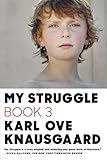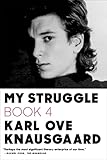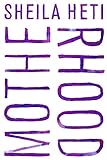I’ve spent much of this year writing a novel, which I expected would have a big impact on my reading habits. But apart from some research assignments—a lot of recent Russian history and a few books about Berlin—I pretty much went on as I normally do, reading a mixture of books that I had to for review, and others I felt a sudden compulsion to pick up in order to postpone reading anything with a deadline attached to it.
At the beginning of the year I wrote about Denis Johnson’s posthumous story collection The Largesse of the Sea Maiden, which I think is a capital G, capital B Great Book about death. I’ve read Jesus’ Son multiple times since it rewired my brain in the summer of 1993, but this assignment gave me an opportunity to dig in to his whole body of work: the poetry, the plays, the reportage and all those fascinating novels. He could have done the same thing over and over and people would have lapped it up, but it’s striking just how varied a body of work he produced.


I read some of the short fiction of Gerald Murnane, which has been collected in Stream System. Like all his work, it represents another facet of the same project all his work is engaged in furthering: the mapping, in intensive and idiosyncratic detail, of a single (and singular) consciousness. If you haven’t read Mark Binelli’s extraordinarily entertaining Times profile of him, do so at once.
I read Chekhov’s story “Gusev” a couple of times for something I was writing. I don’t know how many times I’ve read it altogether—maybe 10?—but I can never remember it whole; there’s always some part of it that presents itself as new, or that I register in a way I never registered it before. There are so many Chekhov stories I haven’t read but I seem to keep going back to the same ones, either because they’re inexhaustible or I have a terrible memory. E.M. Forster had a good line about not ever being able to remember what happens in Chekhov’s stories, but I’ve forgotten what it is.

Someone, and I’m afraid I have genuinely forgotten who it was, recommended a Heinrich Böll story from 1955 called “Mürke’s Collected Silences” to me (and I can’t recall who translated my edition, either; apologies, translation community). It’s about fascism, guilt and belief, and joins Krapp’s Last Tape in the pantheon of great works involving tape editing.





I guzzled Rachel Cusk’s Outline trilogy, and then reread the final book, Kudos, when I reviewed it alongside volume six of Knausgaard’s My Struggle (translated by Don Bartlett and Martin Aitken). I’m someone who found pretty much all of Knausgaard’s sequence compelling, even volumes three and four, where I think a lot of readers drop away. But it was only during the 400-page “essay” on Hitler in the new book that I got really bogged down. It’s an enormously tedious misstep that should have been cut, or at least significantly reduced in size (I mean, the book would still be 800 pages without it). But while there are many passages in the Knausgaard that I will undoubtedly return to, it’s Cusk’s trilogy that will, I think, continue to generate fresh meanings on repeated readings. Not that it’s a competition, but the two projects are so interestingly intertwined (Cusk was inspired to write her three novels after reading Knausgaard; he appears in Kudos transformed into a lugubrious Portuguese novelist) that it’s hard not to consider them alongside one another.





I read and loved Sheila Heti’s Motherhood, Sally Rooney’s Normal People and Rachel Kushner’s The Mars Room, the last of which kept me absorbed, and by virtue of that sane, for four hours’ standing journey on a packed train from Scotland to London on the last day of the Edinburgh Festival. I read Emmanuel Carrère’s The Adversary, which is as amazing as everybody who’s read it always says it is. I reread some Alice Munro (“Differently” and “Fits”), and I read Seven Years by Peter Stamm because I’d somehow heard that it’s a great Berlin novel—this despite the fact that it’s set entirely in Munich. Oh well, Germany I guess.
This year, as every year, I bought many more books than I read. Some of them will probably still be unread when I die, but not all of them.
More from A Year in Reading 2018
Don’t miss: A Year in Reading 2017, 2016, 2015, 2014, 2013, 2012, 2011, 2010, 2009, 2008, 2007, 2006, 2005
The post A Year in Reading: Chris Power appeared first on The Millions.
from The Millions https://ift.tt/2PQYxd7
Comments
Post a Comment